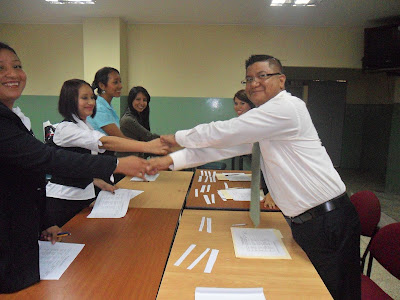The class of American Literature
is a promising tool for developing authentic language. These pieces of literary
works are motivational because they eager the students to travel to a
never-ended world and promote cultural and intercultural awareness in a world globally connected. It is breaking the
barriers of “boring and not important” to “important and necessary for personal
enrichment”.
It is intensive and extensive reading practiced in
a short term period. This class urges the students to take complete responsibility
of their time and autonomous work. Essays, autobiographies, prose, novels,
novellas are part of the common core; poetry
is also part of this journey, it helps the students go deep
into each stanza and search for its meaning which is hidden through metaphors,
alliteration or internal rhyme.
It helps my
students to work easily on the four skills; for writing purposes sets the ground to
analyze a poem, to replicate or write
about inner emotions, soar freely searching for those words that
give sense to a simple and detailed story.
This class is not taken for
granted, it is reading for responsibility; but it later changes and becomes
reading for discovering, questioning and finally enjoying. It is travelling
through eras, places, rivers, emotions, belongings but acquiring that piece of
significant knowledge that makes each
student different. A different human
being, respecting cultures and identities,
I believe this Introduction to
Literature helps my students to become part of this world of words, poetry and prose.
I am great believer that reading opens doors for knowledge and curiosity. I
never expect my students focus on one literary period or writer, I let them
enjoy as much as they can. It is personal growth.
Literature is language and language is culture and this class is
learning about culture and respecting.
Final Exam: REFLECTIVE ESSAYS FROM A CHOSEN WRITER. As part of the Final exam, students were asked to choose a literary piece of writing, analyze it and reflect in their own experiences. Students did a great work!!!
Reflection is an exploration and an explanation of events – not just a description of them.
•
Genuinely reflective writing often involves ‘revealing’ anxieties, errors and weaknesses, as
well as strengths and successes.




















































